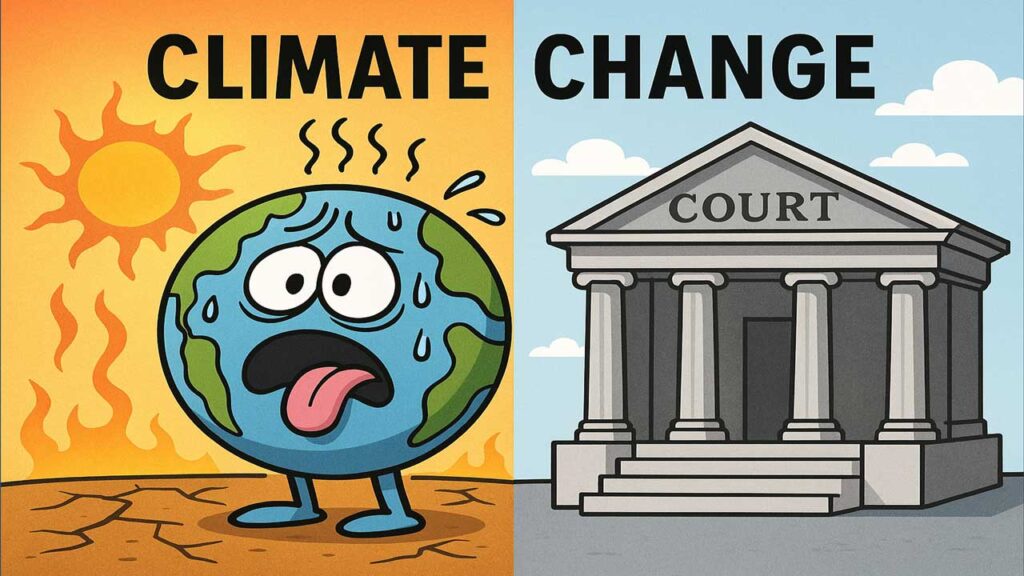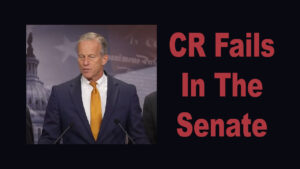Court Ruling on Climate Funding Marks Major Win for Trump

Court Ruling on Climate Funding Marks Major Win for Trump
A recent court decision has sent shockwaves through the world of climate activism, handing former President Donald Trump a significant victory and striking a blow to the financial foundations of many environmental groups. At the center of the ruling is the dismantling of what critics have called a “climate slush fund” — taxpayer money funneled to climate initiatives and advocacy organizations that for years have shaped energy and environmental policy debates.
Scientists Push Back on Climate Report
The ruling comes as dozens of scientists continue to denounce the Trump administration’s latest climate report, calling it riddled with errors and selective data use. They argue the findings downplay the urgency of global warming and ignore the broader scientific consensus.
Energy Secretary Chris Wright pushed back on those accusations, saying the report largely reflects material drawn directly from the Intergovernmental Panel on Climate Change (IPCC). According to Wright, the administration’s summary highlights real, physical data while avoiding what he called “overheated rhetoric” common in climate activism.
“There’s change going on, but it’s not alarming, it’s not fast-moving, and it’s nowhere near the world’s biggest problem,” Wright argued. He framed the controversy as another example of how political climate science has become.
Economic Perspective: Billions in Play
For Trump allies, the court ruling is about more than science — it’s about economics. Daniel Turner, founder of the advocacy group Power to the Future, emphasized how deeply taxpayer dollars have fueled what he describes as a false green economy.
“When Vice President Kamala Harris bragged about investing over a trillion dollars into green initiatives, that wasn’t free-market capital. That was printed tax dollars,” Turner said. He argued that such investments propped up wind, solar, and electric vehicle industries that otherwise would have struggled to attract private backing.
According to Turner, climate scientists play a key role in justifying those massive expenditures. “They’re being paid to defend a trillion-dollar false economy,” he said. Without government subsidies and regulatory mandates, he added, few investors would fund projects like large-scale wind farms or solar developments.
Impact of the Court Ruling
The recent decision, which restricts environmental groups’ access to taxpayer-backed climate funds, could have far-reaching effects. Turner believes the ruling will effectively starve many activist organizations of the money they depend on.
“This is government grift funneled through taxpayer-funded programs,” he said. “When their funding dries up, the activists will dry up too.”
He argued that environmental groups have long wielded disproportionate influence, not because of grassroots support, but because of steady government financing. Without that funding stream, Turner suggested, the climate movement faces a slow and painful decline.
Reframing the Climate Debate
Beyond the courtroom, Trump’s allies see the decision as an opportunity to reset the public conversation on climate change. For Turner, the benefits of carbon dioxide are often overlooked. “CO2 is plant food,” he said. “It contributes to global greening, expanding fertile land and crop yields.”
He pointed to decades of failed climate predictions as evidence that alarmism has lost credibility. “We’ve been told for 30, 40, 50 years that the world is ending. None of the predictions have come true,” Turner noted. From dire warnings about disappearing coastlines to proclamations of a five-year countdown to disaster, he said the constant cycle of apocalyptic claims has exhausted public patience.
What Comes Next
For everyday Americans, Turner and Wright argue, the costs of climate policy have been tangible — from higher gas prices to restrictions on appliances like gas stoves. They frame the ruling not just as a legal victory, but as a step toward restoring economic sanity and individual choice.
Critics, however, warn that downplaying climate risks could have severe long-term consequences. Scientists caution that ignoring carbon emissions and delaying transitions to cleaner energy sources risks exacerbating extreme weather, sea-level rise, and ecological disruption.
Still, the ruling represents a pivotal moment. By striking at the financial backbone of the environmental movement, the court has reshaped the battlefield on climate policy. Whether it signals the decline of taxpayer-backed activism or merely forces groups to adapt and seek private funding remains to be seen.
For Trump and his supporters, though, the message is clear: the tide may be turning in their favor, and the climate debate may never look the same again.









